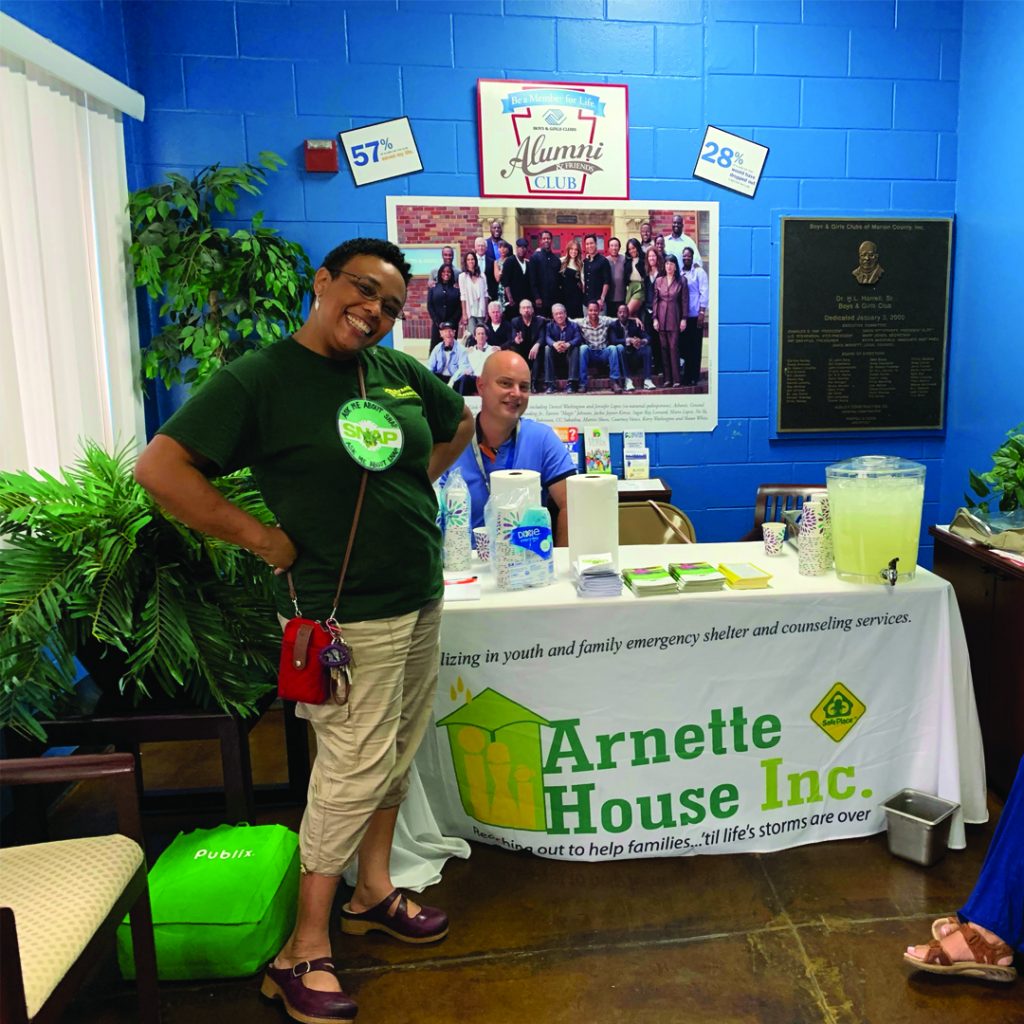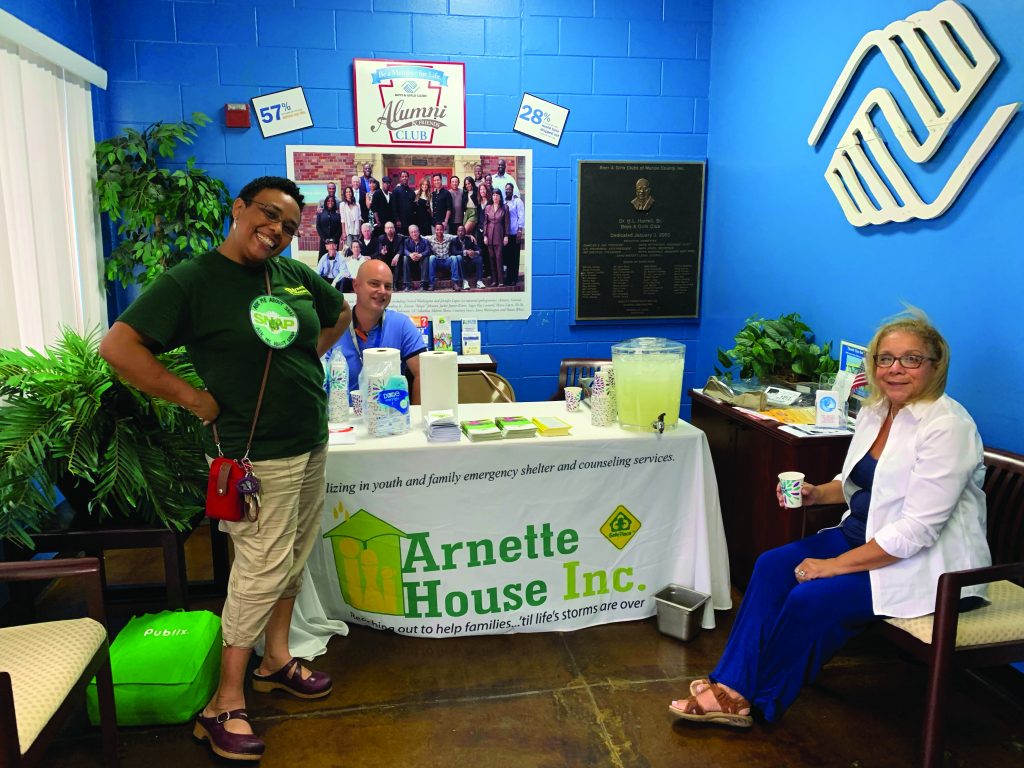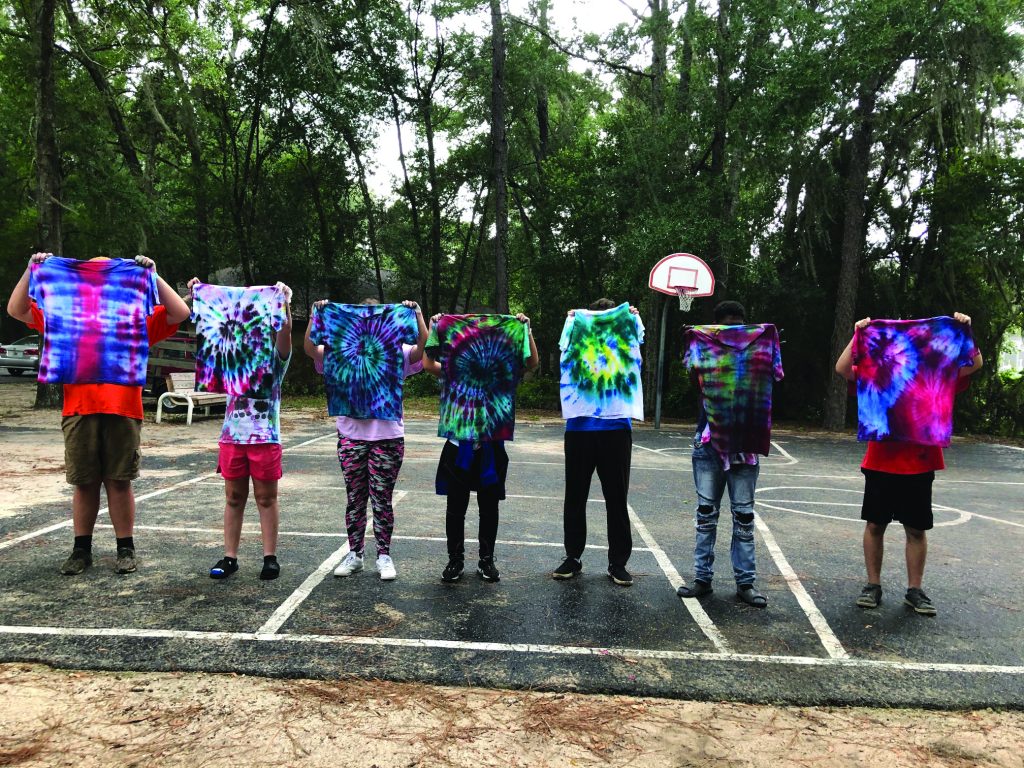SNAP geared to youth and families

The free program to address behavioral challenges is offered locally by Arnette House, Inc.

Photos courtesy of Arnette House.
The ages-old challenge of children and parents achieving mutual respect and working together on solutions to challenges has been compounded by the ongoing pandemic. In Ocala, one local agency is offering a free program to help youth and parents navigate these increasingly tumultuous times.
The mission of Arnette House, Inc., a nonprofit founded in 1981, is to provide safe and effective programs to strengthen youth and families. One of those programs is SNAP (Stop Now And Plan) for boys and girls, and the partner SNAPP for parents and SNAP in School programs. The programs address, for example, problematic, aggressive and antisocial behaviors.
The early intervention programs are offered free to families in Marion and Lake counties, with services currently being delivered virtually.
SNAP facilitator Toshiko Brown, who is part of the Arnette House team, along with Nilda Sessler and Donna Norman, said the program originated in 1985 in Toronto and has been actively researched through the Child Development Institute.
“One could say that origins of the program are even older as it is based on cognitive behavioral therapy,” Brown stated. “The Arnette House has been providing SNAP program services to Marion County youth and their families since 2018. Our team provides case management, referrals, individual support and facilitating youth and parent groups. Youth and their parents learn and practice behavior management skills, problem solving and how to hold themselves accountable for their actions. We love this program and believe it can effect positive changes.”
Brown outlined ways the pandemic has affected families the program is intended to serve.
“We have parents who’ve lost their income and have struggled to pay rent and buy food or obtain medical and mental health services,” she explained. “SNAP is continuing to offer virtual group sessions and individual support and counseling in recognition of the stress and sense of isolation that stay-in-place orders are causing.”
Brown went on to say that despite technological challenges, economic uncertainty and not knowing what to expect, SNAP participants are working to learn self-management skills, problem solve, share honestly and appreciate the support the SNAP team is providing.
“While each family referred is learning SNAP strategies that help non-compliant/aggressive youth behave in more socially acceptable ways, we also refer families for needed resources to any number of our many community partners. SNAP also serves families of all types because many SNAP youth live with relative and non-relative care givers,” Brown noted.
“There is a great need for this kind of programming in every community. It is the only program of its kind that teaches problem solving and continues to be extensively researched for effectiveness and fidelity to best practices recommended for non-compliant, aggressive and antisocial youth. It also helps parents learn with much needed child management and self-care skills that make all the difference,” Brown added.

Photos courtesy of Arnette House.
The SNAP boys and girls programs are for those ages 6 to 11, with a gender-specific focus. Components include a 13-week structured group meeting, concurrent parent group, one-on-one family counseling, individual counseling and school advocacy and teacher support. The SNAP in School program teaches elementary school students to use SNAP strategies to practice self-control, problem solve and make better choices.
Brown said the program goal is to serve a minimum of 25 families per fiscal year. In the fiscal year 2018-2019, 33 families participated in group sessions. In the fiscal year 2019-2020, 28 families participated in group sessions.
According to materials provided by Arnett House officials, SNAP is the result of three decades of research, program development and evaluation by the Child Development Institute and found to be effective by the National Institutes of Health. SNAP received the 2018 International Society of Crime Prevention Practitioner’s Community Based Program of the Year award.
The Arnette House also offers residential services for ages 10-17 and group homes for ages 13-17. The agency was created after Gary Arnette, the son of Vernon and Sara Arnette, died of a drug overdose in 1979. In lieu of flowers, they requested that money be donated in his memory to the Marion County Mental Health Association. This became the seed money for the Arnette House Project. Arnette House has since expanded into a three-building complex on 4.8 acres in Northeast Marion County. The organization receives funding from state, federal and local grants and relies on contributions from businesses, private donors and fundraising. Services are offered at no charge.
To learn more about SNAP, call (352) 622-4432 or email:snap@arnettehouse.org. For information about Arnette House, call (352) 622-6135 or visit www.arenttehouse.org





